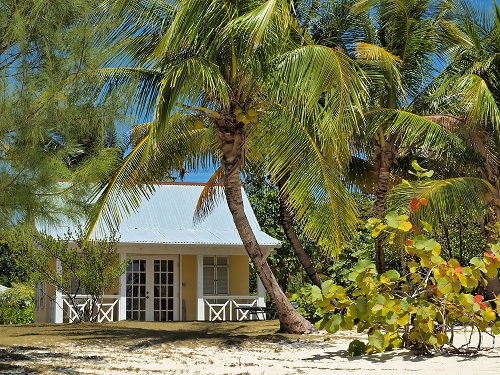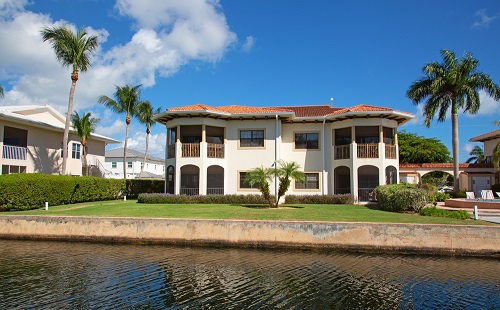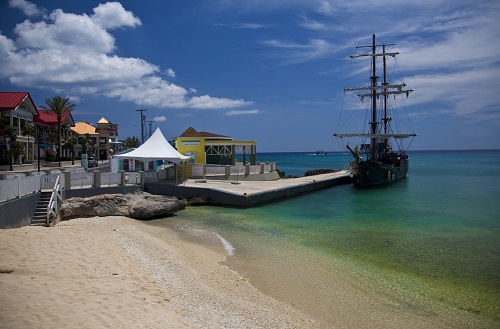In order to enter the Cayman Islands, your passport must have a minimum validity of six months beyond the date of your return ticket, assuming you are on a short-term visit. Nationals from some countries will also need to possess a valid visa. You will need to present proof of onward or return travel, and may be asked to show evidence of sufficient funds to maintain yourself, as well as any dependants, for the duration of your stay in the Cayman Islands. On occasion, you may be able to use a local guarantor in place of proof of sufficient funds. Their signed consent for liability will be required.Nationalities that do not require a visa to enter the Cayman Islands include the United States of America (USA), Canada, the United Kingdom (UK), and the majority of countries within the British Commonwealth. However, if you do need a visa, you will need to obtain it before you travel. If you are unsure whether or not you require a visa, you can visit the government immigration website for a full list of countries and their requirements here.
If applicable, upon arrival, you must retain the immigration card given to you by your airline. You’re highly advised to keep your immigration card, along with your other travel documents, in a safe (yet easily accessible) place. You may be required to present these to an immigration officer when you depart.
Many visitors will be able to stay for a period of up to six months, although this period can be extended. UK Emergency Travel Documents are accepted for entry and exit, as well as airside transit.
Visas
Student visas
In order to qualify for a student visa in the Cayman Islands, you will need to be studying full-time at a recognised educational institution.
The following groups of people do not require a student visa to study in the Cayman Islands:
• Native Caymanians
• Spouses of native Caymanians
• Permanent residence holders
• Residency and Employment Rights Certificate holders
• Dependants of any of the above, so long as they are under the age of eighteen
Those who do not belong in one of the above groups, who are over the age of eighteen years old and/or are entering the Cayman Islands for the specific purpose of studying at a recognised institute, who will be leaving at the end of their studies, will require a student visa.
In order to make your student visa application, you will need to complete a V3 form, and provide evidence of financial support in the form of a guarantor or sufficient savings. You will also need to fill out a medical questionnaire, and show a letter of confirmation from the educational institute that you will be attending. You will need to provide details of your accommodation, and pay any appropriate visa fees. You may or may not be asked for a criminal records check and/or a police clearance certificate.
You can usually make this application at the local embassy or consulate in your home country. Alternatively, depending on circumstances, you may be able to make it to the Chief Immigration Officer in the Grand Cayman (Department of Immigration, P.O. Box 1098, Grand Cayman, KY1-1102).
Upon successful application, you will be issued with a student visa that will last for the duration of your studies, but not exceeding four years. After you arrive, you must attend the Immigration Department Headquarters to have your passport endorsed with a student visa.
If your application is unsuccessful, you can make an appeal to the Work Permit Board. This must be done within seven days.
Visitor visas
Those who are not visa-exempt will require a visitor visa in order to visit the Cayman Islands. This must be obtained at the local embassy or consulate in your country of residence, prior to arrival.
Transit visas
Those who are not visa-exempt will require a transit visa in order to transit through the Cayman Islands to their intended destination. This must be obtained prior to travelling, at the local embassy or consulate in your country of residence.

Work permits
There is nothing stopping you from seeking employment in the Cayman Islands whilst you are visiting, even if you are only there for tourism purposes. However, the Chief Immigration Officer and/or the Immigration Boards may refuse you a work permit if you are only on the Islands as a tourist visitor. If you are on a tourist visa and apply for a temporary work permit, your application will only be considered if you leave the Cayman Islands and re-enter. Exceptions are made in special circumstances at the discretion of the Chief Immigration Officer.
A work permit may be issued either for a period of up to six months (temporary work permit), or for longer on a renewable basis (annual work permit).
Exemptions from work permits can be found here.
It is worth noting that “prohibited immigrants” include:
• Those declared destitute/bankrupt
• Those who have a mental disorder or who have been previously deported
• Any persons creating or potentially presenting health hazards to the community
• Any persons believed to be involved in prostitiution
• Those who have received a prison sentence of longer than 12 months in another country
• Any persons declared to be undesirable for economic or moral reasons
Temporary work permits
If you’re planning a business trip, including selling services and taking purchase orders, you will require a temporary work permit for the Cayman Islands. You can obtain this in advance by applying to the Department of Immigration. You cannot legally accept any kind of employment in the Cayman Islands without a valid work permit. You must also declare any samples of goods that you are bringing into the country with the intention of gifting or selling.
The contact information for the Cayman Islands Department of Immigration is as follows:
Telephone: (345) 949-8052
Email address: imweb@gov.ky
Website: http://www.immigration.gov.ky/portal/page/portal/immhome
Annual work permits
An employer may apply for the renewal of an annual work permit on behalf of their employee with the Work Permit Board or, if the employer has a business staffing plan, the Business Staffing Plan Board. Self-employed workers can apply for their own annual work permit to the Chief Immigration Officer.
Note that if the application is for employment located in Cayman Brac or Little Cayman, the application will need to be made to the Cayman Brac and Little Cayman Immigration Board (in Cayman Brac).
The following people do not need to pay non-refundable work permit fees:
• Teachers (licensed by the Cayman Islands Education Council)
• Ministers of religion
• Cayman Islands Monetary Authority employees
• Contracted government employees
Requirements and prerequisites for work permits include:
• Completion of an English test, if applicable
• A medical examination (including HIV/VDRL tests)
• Chest X-ray
• Completion of a medical questionnaire
• A notarised English translation of any required documents that are not in English
Notes: The medical examinations that are required with work permit applications are valid for a period of three years. Laboratory tests, which have to be repeated with each medical examination), are valid for six months. Chest X-rays are valid for five years. Medical examinations must be signed and stamped (or sealed) by a licensed physician. Immigration authorities reserve the right to request additional medical examinations or information at any given time.
Translations
According to the government, approved local translators are:
• Baraud International Recruitment & Consultants: Translations by Bernd Kleinworth (German, Italian, French, Portuguese, Spanish, Dutch)
• Baraud International Recruitment and Steppingstones Recruitment: Translations by Ninfa Arellano-Smith (Spanish)
• Curtis and Methais Barnett (Spanish, French, German)
• Patrick Bennett (Honduras) (Spanish).
Dependants
In the Cayman Islands, rather than having dependant visas, you must add your dependants to your work permit, as they are not automatically given the right to live and work in the Cayman Islands. There is a salary requirement for those who wish to add dependants to their work permit. Married permit holders are able to combine their income to meet the dependants’ salary requirement. However, unmarried couples are not able to do this.

CaymanResident.com states that the salary requirements currently sit at “a minimum household income in the region of CI$3,500 for one dependant to be included, with an increase of CI$500 for each additional dependant.”
All dependants over the age of eighteen years old must submit their own medical questionnaire. If the dependant is your spouse, you will need a copy of your marriage certificate. For dependent children, you will need copies of their birth certificates, and if applicable, a letter of acceptance from the private school your children will be attending. Children of expatriates are only allowed to attend private schools on the islands, unless their parents work for the government.
Residency
Some people may be eligible to become Caymanians, such as children or grandchildren of Caymanians born in the Cayman Islands, people who are married to Caymanians, and people who were born in the Cayman Islands between 27 March 1977 and 1 January 1983. You can see a full list of eligibility here.
Children that are born in the Cayman Islands but are not Caymanian nationals by birth will need to report to the Department of Immigration in order to have their status regularised. Parents must provide a work permit amendment form or residency variation form, a passport, or an original Cayman birth certificate, and complete an extension form, in order to provide the necessary supporting documentation.
Permanent residence
A person who has been legally residing in the Cayman Islands for a minimum period of eight years will become eligible to apply for permanent residency.
Approval for permanent residency is generally assessed by the following factors:
• Occupation
• Education, experience, and training
• Local investments
• Financial stability
• Integration into the Caymanian community
• Knowledge of the Cayman Islands’ history and culture
• Possessing close Caymanian connection
• Demographic and cultural diversity
• Age distribution
You can find more in depth information on eligibility and requirements for permanent residency on the government website here.
In some circumstances, an individual may be granted permanent residency based on independent financial means, regardless of the length of time they have resided in the Cayman Islands.

